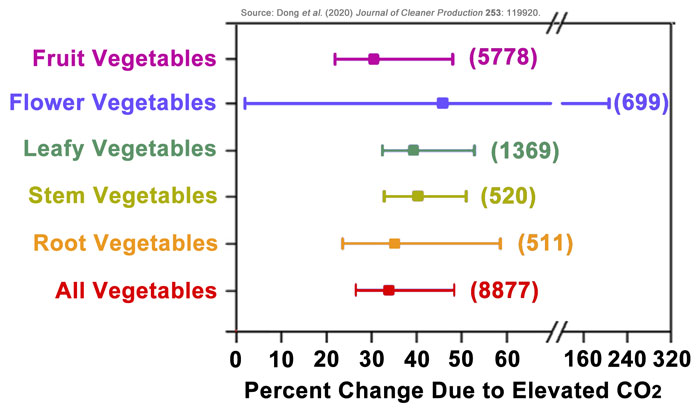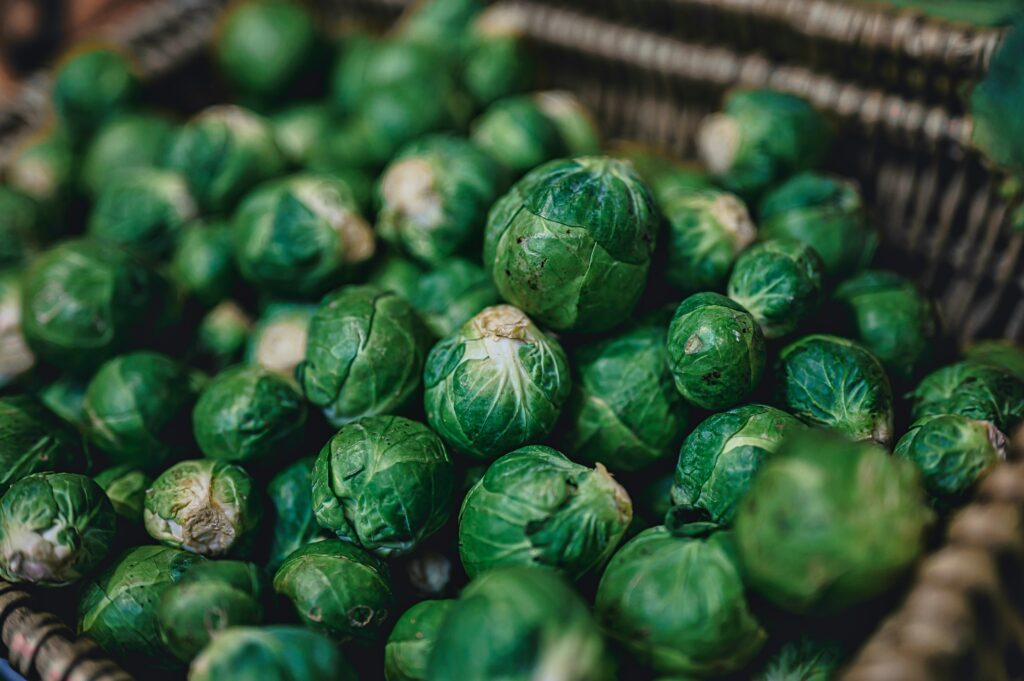If climate change wasn’t already scary enough, a new comprehensive meta-analysis of over 100 studies published over nearly 60 years looking at how vegetable plants respond to higher levels of CO2 in the air shows that plants respond positively to the extra CO2, that the gains are experienced across all vegetable classes, and that the extra CO2 helps plants cope with other types of ecological stress more effectively. Summarized at the CO2 Science website, it is hardly news that plants benefit from CO2. But it might be considered news in a world in which every effect of CO2 is said to be bad. Because now the cauliflower will be bigger, with more of its characteristic flavour.
This summary chart shows (once you realize the numbers in parentheses are the number of observations and the ones at the bottom the increased yield from increasing CO2 from 350 to 827 ppm) that when researchers experiment with elevated CO2 levels, the growth gains are large and significant:

The gains in mass are experienced in all plant parts, including the edible nutritious parts. In a world with a growing population and more mouths to feed, the discovery that a by-product of our use of fossil energy causes higher productivity in agriculture ought to be a cause for celebration. Though not for surprise given what greenhouse owners routinely do: add lots of CO2.
In fact it is a cause for celebration. And we celebrate it, even if the climate doomsters and alarmists avert their gaze or try to come up with reasons why all the extra vegetable growth is a bad thing and we need fewer people not more food.
If the results had gone the other way, and vegetable production turned out to be harmed by extra CO2, we’d have all heard about the study day in and day out. The science went this way so it didn’t make the news. But it is news, and it’s good news. Steam, butter and share accordingly.



I have heard recently that extra atmospheric CO2 increases the bulk of plants, but not the nutritional value, unless they are grown in greenhouse conditions where all of the other growth factors are optimized with fertilizer at the same time. Plants grown in natural soil with naturally higher CO2 levels grow bigger, but contain the same nutritional value per plant, meaning that you have to eat more to get the same benefit. And since people don't eat more, plants grown in these conditions can actually have a negative impact on dietary nutrition... Do you have any information on that claim?
I had read years ago that rapid increases in ambient carbon dioxide can switch off, or down regulate some synthetic functions in plants. Not sure which ones. Perhaps plants cope with slow, insidious changes in carbon dioxide, whereas rapid changes (as in most experimental protocols) may be counter productive. I doubt anyone has been doing measurements of micronutrients over a long enough time scale to answer the question.